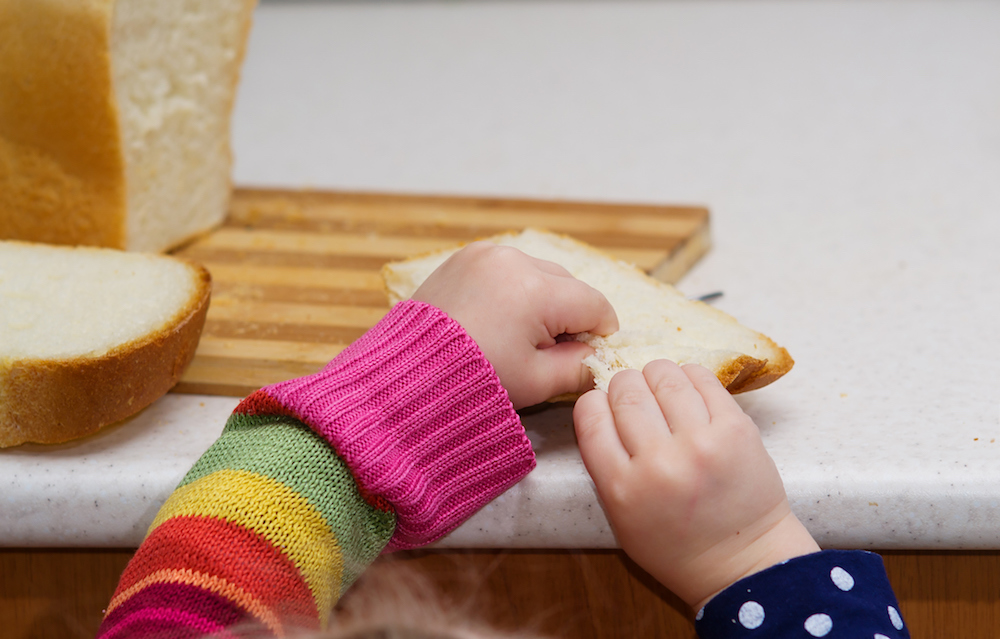Topics

PHOTO: Getty Images
“I know eating carbohydrates will make me fat.”
“Wait – aren’t carbohydrates unhealthy?”
“We have a family member with diabetes, so we stay away from carbohydrates altogether.”
These comments come directly from our pediatric patients, and we’re definitely familiar with the concerns. However, saying “no” to carbohydrates isn’t the answer. We want to help you get smarter about the carbohydrates that are good for you.
[read:] National Nutrition Month: 10 tips from our dietitians
The goal: Find the best carbohydrates and reduce the rest.
Let’s start with the basics. Where do the good carbohydrates come from? The short answer: PLANTS!
The complex carbohydrates from whole, plant-based foods provide quick and long-lasting energy, not to mention essential nutritional value. They typically contain more fiber and protein – two nutrients responsible for slowing down digestion and increasing fullness.
[read:] When toddlers will eat dirt, but not vegetables
Filling up on the right kind of carbohydrates will help reduce the calories in your diet and won’t make you gain weight, contrary to common belief.
So why all the bad press on carbohydrates?
It’s because sugar and processed grains are also carbohydrates. The added sugar in foods like cookies, cakes and candy makes them deliciously sweet, but undoubtedly provides little to no nutritional benefit. The processed grains in white bread and pasta are digested quickly; meaning their impact on hunger suppression is more temporary.
Today, nearly half (40 percent) of the calories consumed by two- to 18-year-old adolescents are made up of added sugar and solid fats – we consider these empty calories. Some of the leading food products in this category include soda, fruit drinks, and dairy and grain desserts.
[read:] 5 tips to get more vegetables in your child’s diet
We’re eating many more empty calories and added sugar from processed carbohydrates than recommended – up to three times more – and these excess calories can lead to weight gain. In turn, weight gain can lead to other health concerns like heart disease and diabetes.
Setting limits on the bad carbohydrates throughout the day and replacing them with nutritious alternatives will help reduce added sugar (and saturated fat) in the diet and support overall health. Try some of these tips:
1. EAT MORE PLANTS. Fruits, vegetables, whole grains, nuts, seeds and beans are examples of good carbohydrates. Check out our plant dictionary below for examples.
2. READ THE NUTRITION FACTS LABEL. Look for foods with fiber and limited amounts of sugar, saturated fat and sodium. Picking out the right carbohydrates can be easy!
3. START WITH ONE SIMPLE SWAP. Reduce the foods you eat with empty calories. Try having fruit for dessert, replace soda with water or cut down the portions of your sweet or salty treats.
[read:] Upping your child’s fullness factor
You also need to watch out for highly-processed plant foods that strip the plant of its nutritional value. For example, you can find more nutrition in a baked potato as opposed to French fries or potato chips.
If you’re not very familiar with the vast variety of plant ingredients, we’ve got you covered. Consider the options below to increase the nutritional value of your diet.
PLANT DICTIONARY
- Whole grains: whole grain cereals, brown rice, quinoa, whole wheat, whole oats, whole grain crackers
- Beans: black, pinto, white, navy, lentils, chickpeas (garbanzo beans), tofu, soybeans (edamame)
- Seeds: pumpkin, sunflower, chia, sunflower butter
- Nuts: almonds, pistachios, cashews, walnuts, peanut butter, almond butter, cashew butter
- Fruits: apples, bananas, grapes, cantaloupe, grapefruit, oranges, pears, peaches
- Vegetables: broccoli, carrots, cauliflower, salad, peppers, tomatoes, corn, peas, potatoes